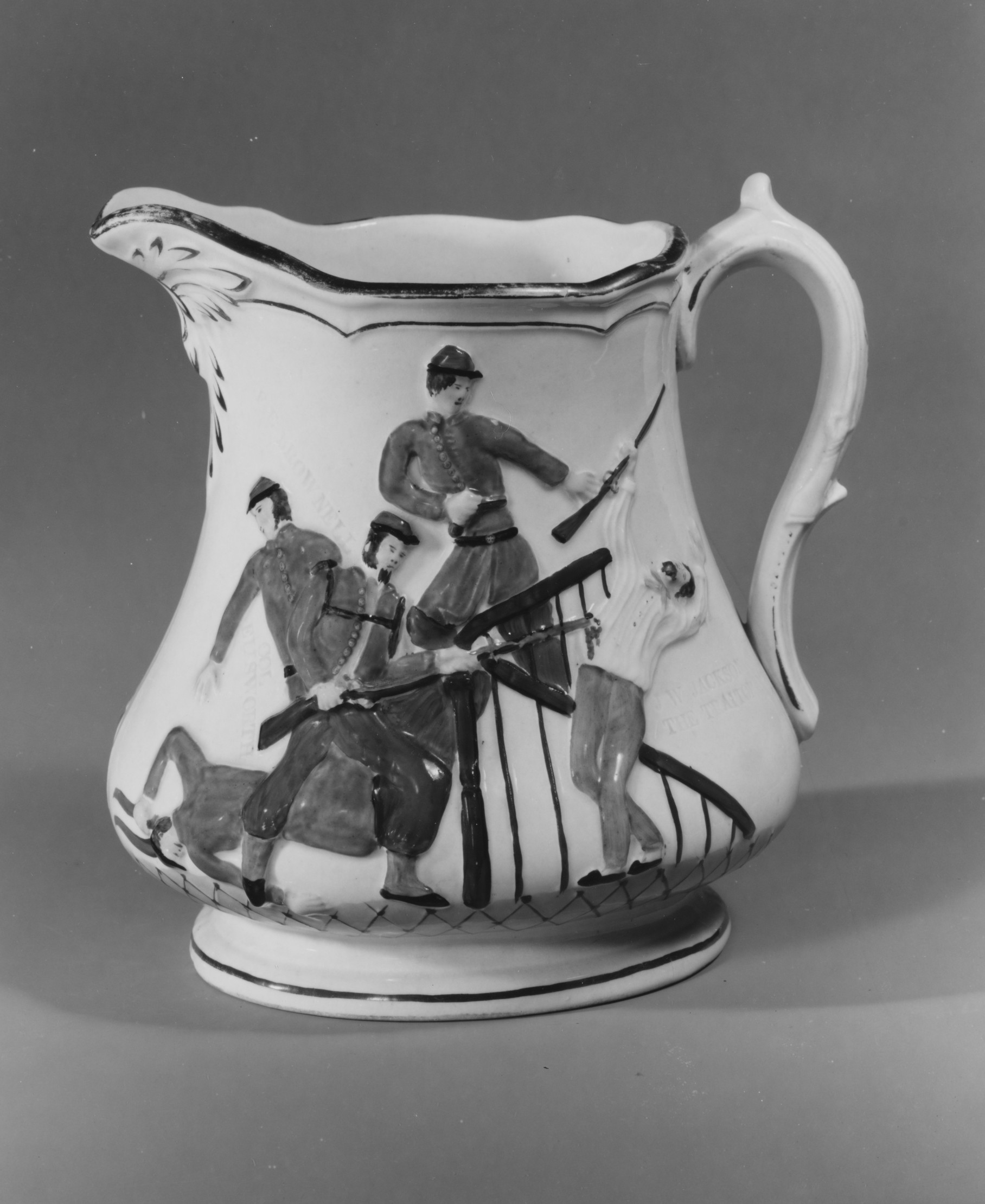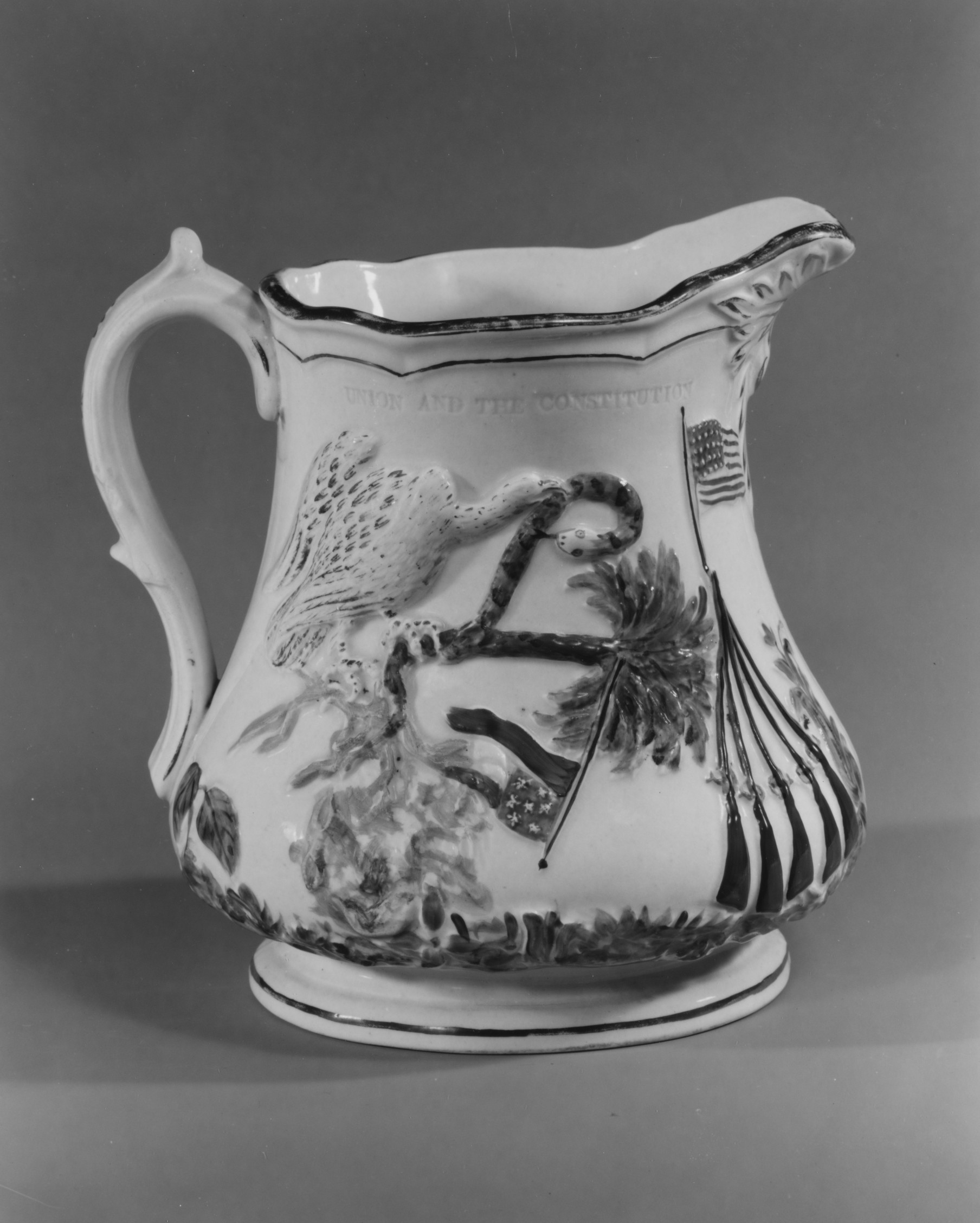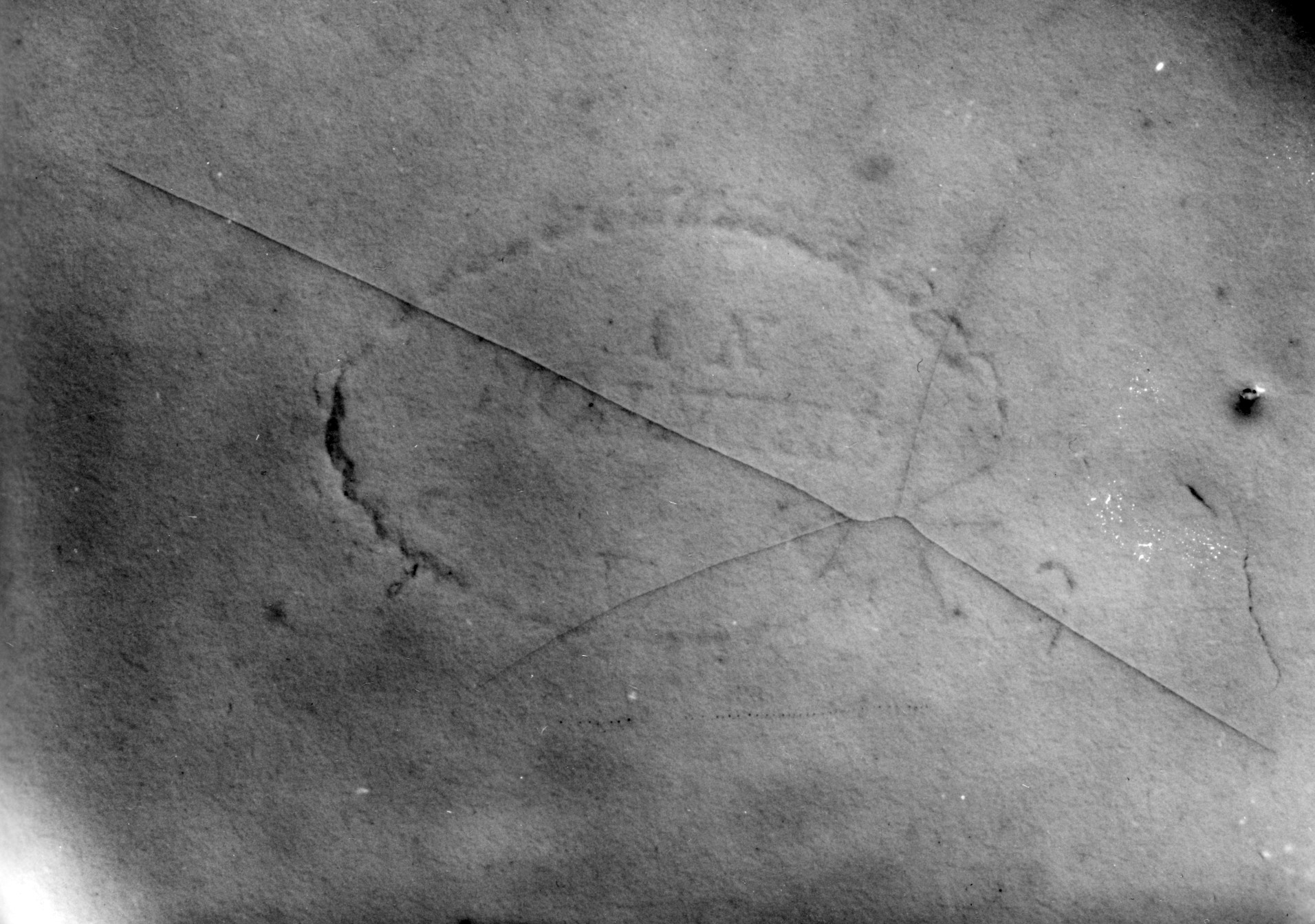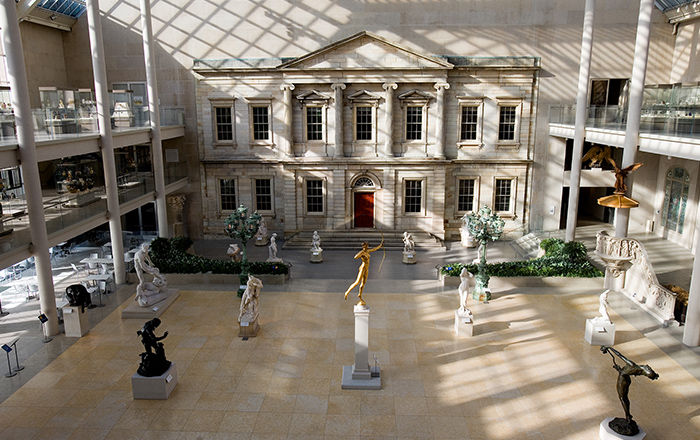Pitcher
Millington, Astbury and Poulson American
Known as the Colonel Ellsworth Pitcher, this vessel features scenes in relief on both sides that commemorate a decisive incident at the beginning of the Civil War. Elmer Ephraim Ellsworth, a United States Army officer and close friend of Abraham Lincoln, recruited a Zouave regiment in New York City, and they were sent to Alexandria, Virginia, on May 24th, 1861, to retrieve the city from rebel forces. Ellsworth cut down a confederate flag that was flying from a hotel there, but as he descended the stairs, the proprietor, secessionist James Jackson, shot and killed Ellsworth. Jackson was then immediately killed by members of Ellsworth’s troops. Ellsworth is believed to have been the first Union officer to die for the cause of the American Civil War, and his death became a rallying cry for the Union forces. The tragic incident caught the public’s attention, thanks to newspaper articles, including a notable story published in Harper’s Weekly. It spawned numerous memorials, including this bar pitcher made by the Trenton, New Jersey, pottery of Millington, Astbury, and Poulson. Seen in relief on one side is the fallen Ellsworth and the graphic stabbing of Jackson with a bayonet. The opposite side features a gilded eagle attacking a serpent wrapped around an uprooted palmetto tree, symbolic of the Confederate South, with a rebel flag on a broken flagpole, next to which an American flag flies from a cluster of muskets. The design is credited to Staffordshire modeler Charles Coxon, part of a large potting family, emigrated to United States in 1849, joining a wave of skilled émigré craftsmen who sought opportunity in the United States. Most examples of this pitcher are plain white; the few that are decorated with colored enamels are said to have been executed by Coxon’s daughter Ann Coxon Smith.
This image cannot be enlarged, viewed at full screen, or downloaded.
This artwork is meant to be viewed from right to left. Scroll left to view more.





